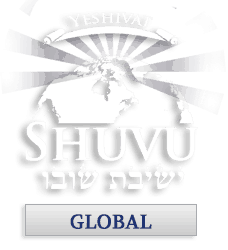וַיִּקְרָ֖א אֶל־משֶׁ֑ה וַיְדַבֵּ֤ר יְהֹוָה֙ אֵלָ֔יו מֵאֹ֥הֶל מוֹעֵ֖ד לֵאמֹֽר: דַּבֵּ֞ר אֶל־בְּנֵ֤י יִשְׂרָאֵל֙ וְאָֽמַרְתָּ֣ אֲלֵהֶ֔ם אָדָ֗ם כִּי־יַקְרִ֥יב מִכֶּ֛ם קָרְבָּ֖ן לַֽיהֹוָ֑ה מִן־הַבְּהֵמָ֗ה מִן־הַבָּקָר֙ וּמִן־הַצֹּ֔אן תַּקְרִ֖יבוּ אֶת־קָרְבַּנְכֶֽם: אִם־עֹלָ֤ה קָרְבָּנוֹ֙ מִן־הַבָּקָ֔ר זָכָ֥ר תָּמִ֖ים יַקְרִיבֶ֑נּוּ אֶל־פֶּ֜תַח אֹ֤הֶל מוֹעֵד֙ יַקְרִ֣יב אֹת֔וֹ לִרְצֹנ֖וֹ לִפְנֵ֥י יְהֹוָֽה:
And He called to Moses, and the Lord spoke to him from the Tent of Meeting, saying, Speak to the children of Israel, and say to them: When a man from [among] you brings a sacrifice to the Lord; from animals, from cattle or from the flock you shall bring your sacrifice. If his sacrifice is a burnt offering from cattle, an unblemished male he shall bring it. He shall bring it willingly to the entrance of the Tent of Meeting, before the Lord.
Leviticus 1:1-3
This week’s Torah portion begins a new book, the book of Leviticus. This book is also known as Torat Kohanim, the instruction of the priests. This is the first book of Scripture that is taught to children. It may surprise you, it is not a book filled with interesting stories and events. Instead, it is a book that defines our duties in our relationship to Hashem. It is the very foundation of our daily devotion.
The core instruction of Torat Kohanim is the commandments of the sacrifices. The text begins with the most holy of all the sacrifices, the Olah. There are various translations of the term Olah, none of the translations do the term justice. The root of Olah is the same root as the word aliyah, when we go up to live in Israel, or we go up for the blessing of the Torah. In other words, Olah means going up. It is the “going up” offering.
There are many subcategories of sacrifices that are included in the Olah. The sin offering, the guilt offering, all of the offerings for festivals, all fall under the category of the Olah. The Shabbat sacrifice and the Rosh Chodesh sacrifices are also Olah. The Olah includes both national and individual sacrifices.
Perhaps the most important of the Olah sacrifices is the Tamid offering. The sacrifice is outlined at the beginning of Numbers 28. It is the first sacrifice of every day, accomplished at dawn. It is the last sacrifice of every day, accomplished at sunset. Without this Olah, none of the other Temple sacrifices are valid. The Olah, therefore, is the sacrifice upon which all other sacrifices hinge. This is the beginning of the instruction to the priests. Shabbat shalom.
